Moving "south of the river" after spending 15 years as a Hackney resident was tumult enough, so you can imagine my irritation when, upon my arrival in Lambeth, south London, I discovered that the council in its wisdom was making major changes to its libraries – including my local one, the Carnegie Library.
The Carnegie Library was closed at the end of April, with the council promising that it will reopen in 2017 as "a healthy living centre with a self-service neighbourhood library". For 10 days the library was occupied by protestors upset at the move. They left the building peacefully, and the gates of the Carnegie Library are now locked shut. Behind those gates, books lie unread and stories go untold.
The closure is a tragedy and it's one that got me thinking what the world – individuals and communities – would be without libraries and what libraries mean to people. So I asked five of the best TV writers in Britain to lend their voices to the anti-closure campaign (#DefendTheTen) and write about what libraries meant and mean to them.
Mark Gatiss (Sherlock, Doctor Who, An Adventure in Space and Time, The League of Gentlemen)
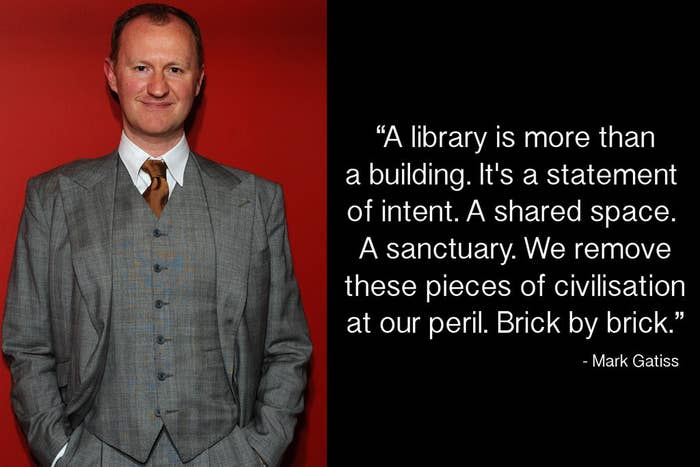
When I was a child, within the cosy confines of my local library – a place that always smelled pleasingly of polish and paper – I made friends. I made friends with Sherlock Holmes and Count Dracula, with Robert Louis Stevenson and M.R. James, with Edith Wharton and Stephen King.
I travelled too – to dusty Montana dinosaur fields, to pirate islands, to the moon and back. And my travels weren't only fictional. As a fossil-obsessed boy, I used the resources of the library to reach out to the Natural History Museum and began a long correspondence with the Department of Palaeontology, even sending specimens back and forth hoping for identification.
I simply wouldn't be the person I am, nor the writer I have become, without having this vital edifice so close to home. It's easy to say that in the internet age, the library is redundant. Nothing could be further from the truth. They have a rosy future as community spaces, adapting to the fast pace of technology but not being sacrificed to it.
A library is more than a building. It's a statement of intent. A shared space. A sanctuary. We remove these pieces of civilisation at our peril. Brick by brick.
Russell T Davies (Cucumber, Doctor Who, Queer As Folk, The Second Coming)
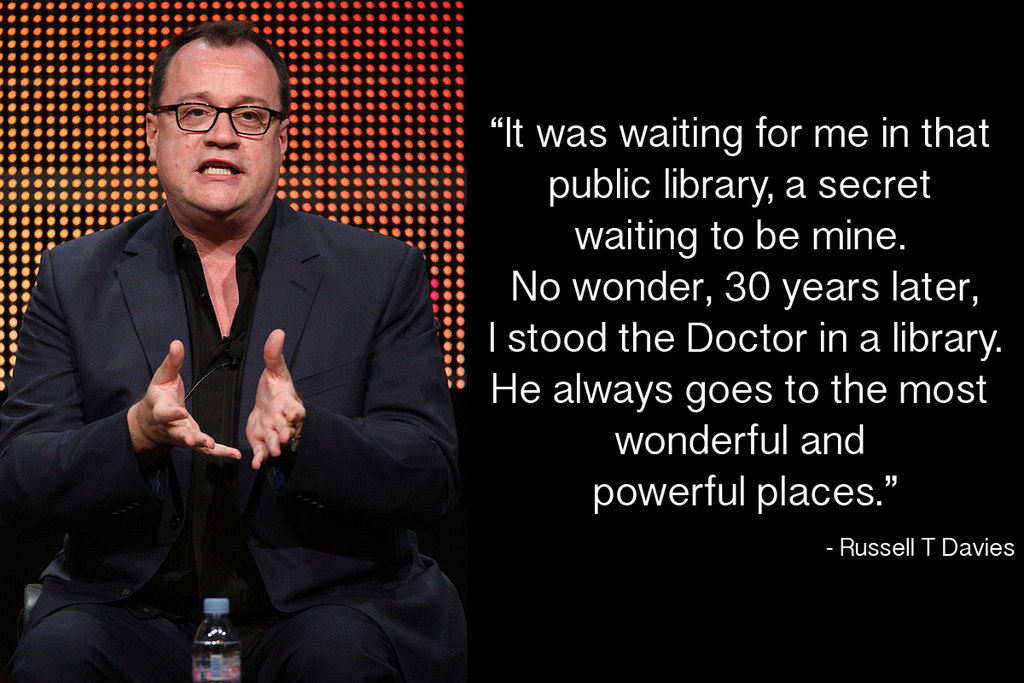
I was lucky – I grew up in a house full of books. But that doesn't mean there aren't more books to be found! And just down the road from where I lived – down a ditch, over a wall, and through some angry man's garden – was Sketty Library. And that's where I could create my own world.
Not my parents' books, or my older sisters' – though their presence meant I'd read The Women's Room by the time I was 14 – but my own world of books, connected by those random links and moods and chances that keep your brain sparking.
I discovered one book that few people have ever heard of, The Crystal Mouse by Babs Deal, and seriously, I think about that book every single day of my life, in some tiny way. Its merciless stare, its bleak loneliness, its whip-crack of a last line. It was waiting for me in that public library, a secret waiting to be mine.
No wonder, 30 years later, I stood the Doctor in a library. He always goes to the most wonderful and powerful places.
Peter Bowker (The A Word, Eric and Ernie, Capital, Occupation, Blackpool)
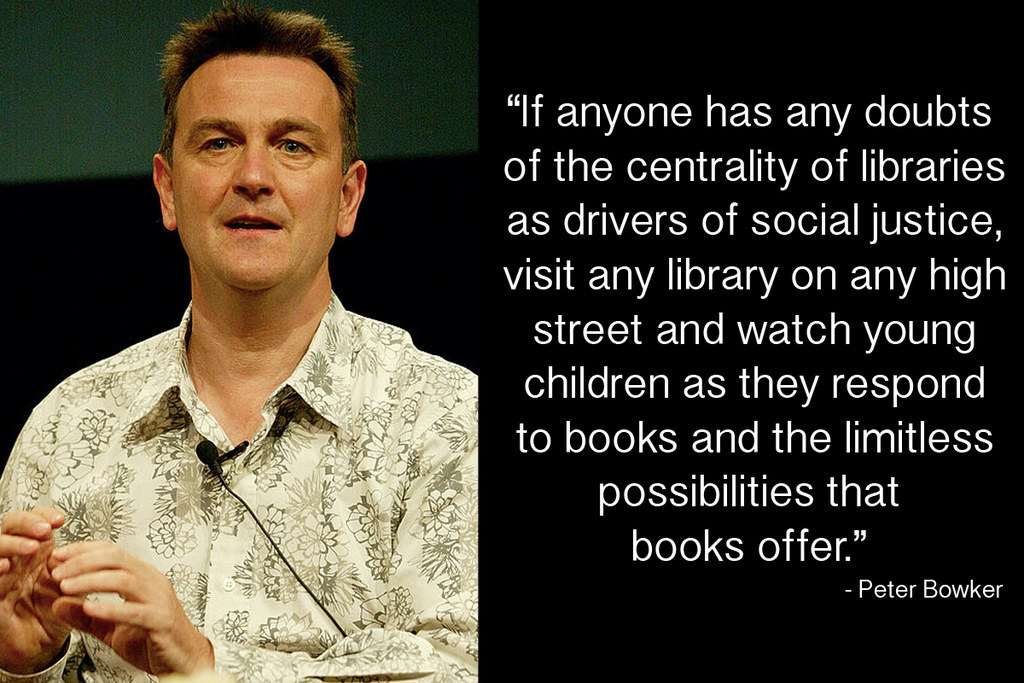
I grew up in a working-class family in Stockport in the 1970s. My brother and I used to argue all the time. Then one day I announced I would take him to the library and prove myself right once and for all. "Take that to the library" became a joke between us that exists to this day.
Because taking it the library was what families like ours did to find knowledge, to devour fiction, to do our homework, to start to discover a world of imagination and culture and joy that opened up to us through reading and reading and reading.
I revised for my A-levels at our local library because the house wasn't quiet enough. I revised for my degree in my library because I was in a house full of punk musicians. When I taught children with severe learning disabilities, one of the highlights of the week was the library visit. I wrote at least two Bafta-winning dramas in my local library. My children grew up going to libraries and my daughter, in turn, revised for her A-levels at our local library. So it is fair to say that libraries have served me well – as they have served and continue to serve millions of people well over the years.
If anyone has any doubts of the centrality of libraries as drivers of social justice, visit any library on any high street and watch young children as they respond to books and the limitless possibilities that books offer. I can't help thinking that this government is intentionally removing that opportunity from the children and families that have paid the highest price for this economic mess that they had no part in creating.
Giving a council the freedom to choose between closing libraries or running down meals on wheels, of reducing support hours for those with disabilities or cutting down on social workers is not local autonomy. It is a cynical political tactic designed to shift the blame for attacks on ordinary people from the government to local councils. It is no coincidence that attacks on libraries run parallel to attacks on the BBC. Both institutions offer open access to our wide and wonderful and diverse culture for everyone – irrespective of race or gender or age or class or tax status.
Libraries promote knowledge through sharing and openness. No wonder this government doesn't care if they close.
Sarah Phelps (The Casual Vacancy, And Then There Were None, EastEnders, The Crimson Field)
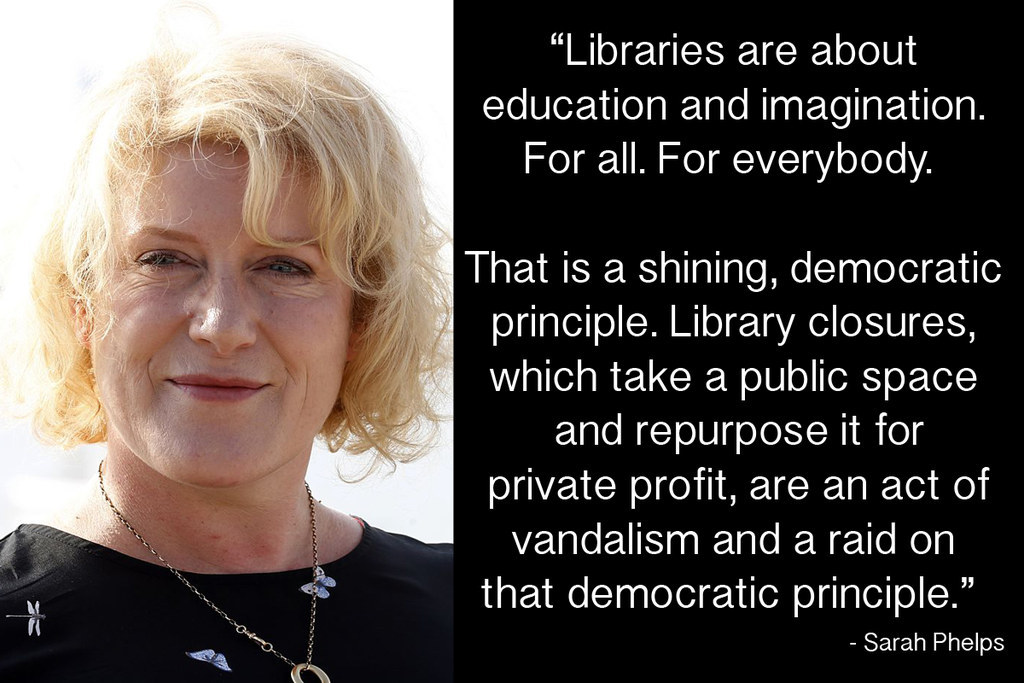
Since I was tiny, a greedy reader devouring books, the public lending library has been an essential part of my life. It was a constant, a fixed star during my rootless, drifting teens and twenties. When I was penniless, living in a series of damp bedsits, the public lending library influenced the biggest decision of my life – to go to night school, to take A-levels which led to university which led to what I'm doing now: writing, telling stories for a living.
Would I have done this without a library in every London borough I lived in? I doubt it. I wouldn't have had access to the books; there wasn't the money for them. I'd completely failed at school, left with barely an exam to my name, written off as a failure.
But the library didn't mind about that. The library was still there. It was open to me, to everyone and anyone. It had books and so anything and everything was possible. The public lending library is not just a room filled with books, although that would be more than enough on its own.
It creates, sustains, and enriches community. It is the beating heart of our shared cultural life. Libraries are about education and imagination. For all. For everybody. That is a shining, democratic principle.
Library closures, which take a public space and repurpose it for private profit, are an act of vandalism and a raid on that democratic principle.
Jack Thorne (This Is England '86, '88, & '90, The Fades, Glue, The Last Panthers, Harry Potter and the Cursed Child, Parts I & II)
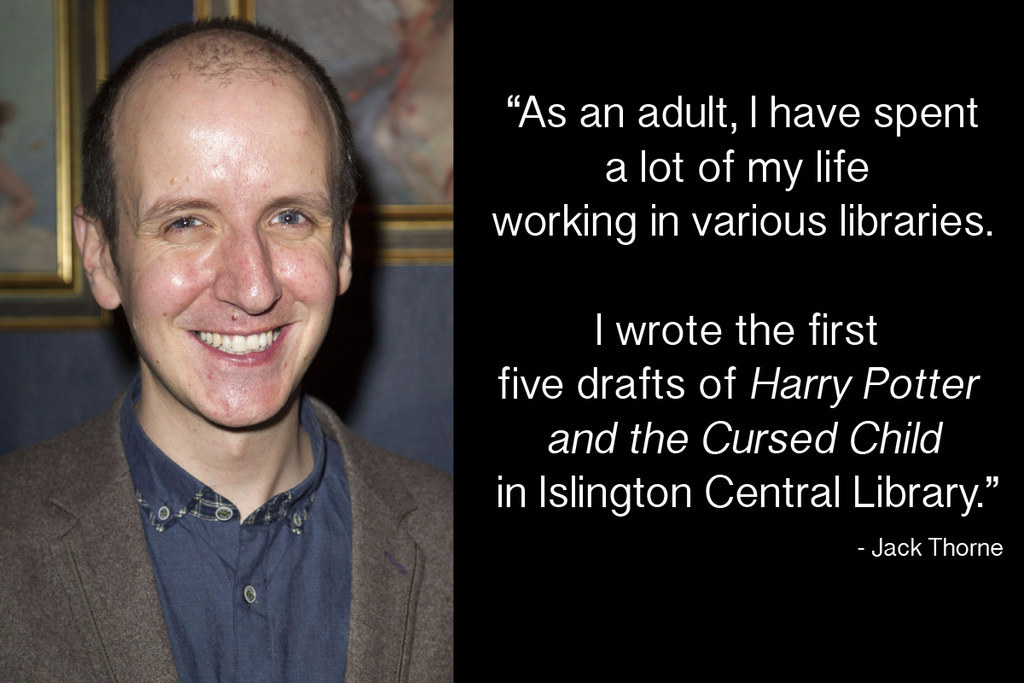
Going to my library every fortnight with my mum was a key part of my childhood. I read the most wonderful and weird range of books as a result of my card – six books every two weeks. I didn't sleep as a kid and wasn't allowed to watch TV at night so I read everything, including, as a slightly innocent teenager, Anthony Burgess's autobiography, which I mainly remember for a passage about him and his wife getting pubic lice.
As an adult, I have spent a lot of my life working in various libraries. I wrote the first five drafts of Harry Potter and the Cursed Child in Islington Central Library – I was living in a bedsit at the time with my wife in Highbury and without that library I'd have been sunk because I don't drink coffee and like quiet and our kitchen table gave me backache. Then it got announced and I got scared about people reading over my shoulder – so I disappeared away.
Anyway, in short, I love a library, think we need them, and think they're incredible value for money for this country because we need people who love books and that's what libraries make – or they certainly did in my case.
You can follow and support the #DefendTheTen campaign here.
UPDATE
Lambeth council is not closing 10 libraries as originally stated. More details on changes being made to library services in Lambeth are here.
